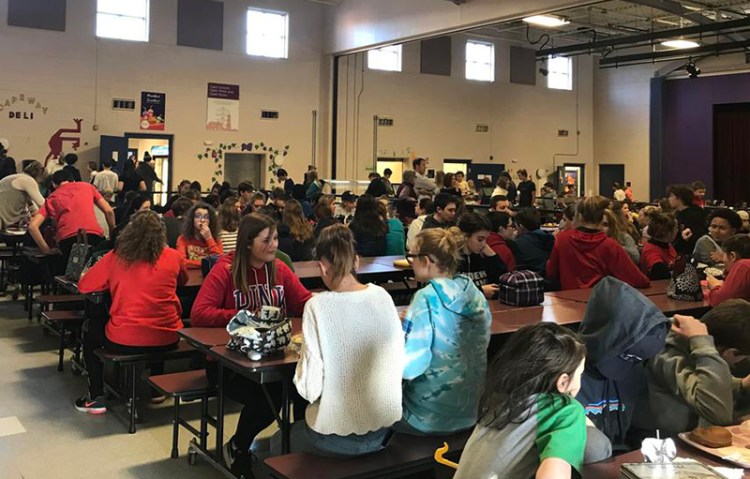CAPE ELIZABETH — With guidance from a team of engineers and architects, the town has started discussing improvements to its three public schools.
A preliminary estimate of the project’s cost is as much as $27 million.
Following a tour Tuesday of Pond Cove Elementary School and Cape Elizabeth middle and high schools, led by Facilities Manager Perry Schwarz, the School Board held a workshop to explore the potential renovations.
The meeting, attended by town and school officials and members of the public, was the first in what will be a series of conversations before plans are finalized and budgets are set, with construction likely not beginning until 2020.
Representatives from Colby Co. Engineering and Scott Simons Architects, both of Portland, presented a design process and preliminary outline, highlighting areas of the schools they hope to focus on.
What CEHS Principal Jeffery Shedd called the most substantial proposed improvement would be renovations to the combined elementary and middle school auditorium and cafeteria, or “cafetorium.”
The cafetorium serves both schools, with five, 20- to 25-minute consecutive lunchtimes starting at 10:45 a.m. This only leaves kitchen staff five minutes between each lunch to clean and reset before the next group of students arrive.
The design team outlined additional challenges with having a combined space, including an undersized kitchen, dual use of “uncomfortable” tables and benches, and inadequate support space for dining and performances.
Their proposed fix is to create a 4,070-square-foot auditorium with additional office space and classrooms at the front of the adjoined schools, and a new 6,050-square-foot kitchen between the schools, attached to the existing structures by separate dining areas in each school.
The team also found issues with the front entrances to both schools, where existing offices are located away from the entry points. That allows visitors to walk past student “gathering space” before reaching the administration. The renovation proposal adds two, 2,450-square-foot offices between the entries closest to Scott Dyer Road.
Pond Cove and CEMS also lack a backup generator, which the design finds problematic, along with flaws in the schools’ information technology systems.
Proposed changes at the high school include renovations to the exterior of the second most-used entrance at the school; new flooring and ceilings in the music, arts, and athletics corridor, and additional space for locker and weight rooms.
Solutions for various athletic spaces would be a new fitness room, multipurpose classroom, and storage space. The plans also propose creating more gender-neutral space, including comparable locker-room space for boys and girls.
Schwarz said the existing boys’ locker room has space for boys’ sports teams, but the girls’ locker room doesn’t have anything comparable.
A field house was also included in the proposed plans, to be built next to Hannaford Field and house a storage room, restrooms, and a concession space.
Finally, the design team pitched the idea of a multipurpose “facilities building” on the campus, which could benefit both the town and schools. The proposed 11,040-square-foot space would include a transportation office, maintenance wood shop, file storage space, and conference room, among other things.
Calen Colby, president of Colby Co., said the second phase of the project, for “schematic design and design development,” would include gathering cost estimates and will begin in September and run until March 2019. Only after that can the team begin drafting and submitting construction documents.
The team gave an estimated construction start date of April 1, 2020, and a “very, very preliminary” cost estimate of $21 million to $27 million.
Interim Superintendent of Schools Howard Colter emphasized there will be many meetings and plenty of time for the public to provide input on any proposed renovations or other areas they feel need attention.
“We don’t mean to say that what we’ve identified are the only priorities, but we knew these would be of interest to a lot of people … (and things) we knew were inadequate and insufficient,” Colter said. “I don’t assume we have it all here, to be quite candid.”
See this story in The Forecaster
Send questions/comments to the editors.



Comments are no longer available on this story